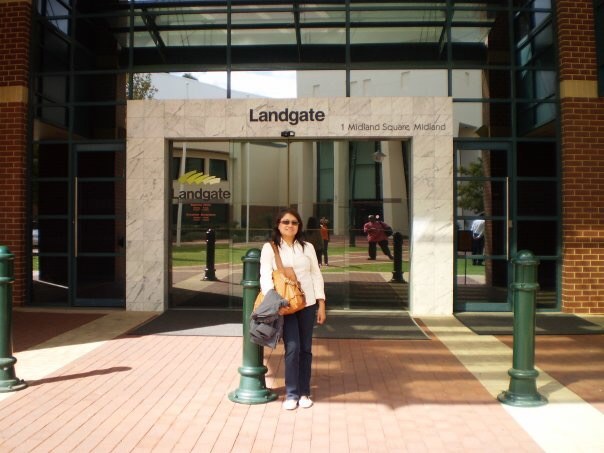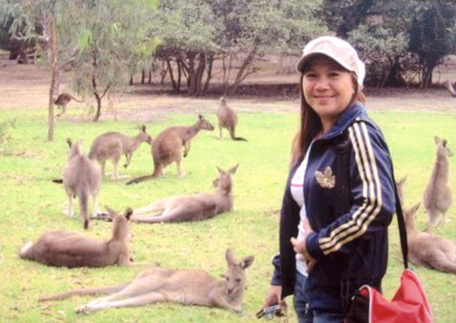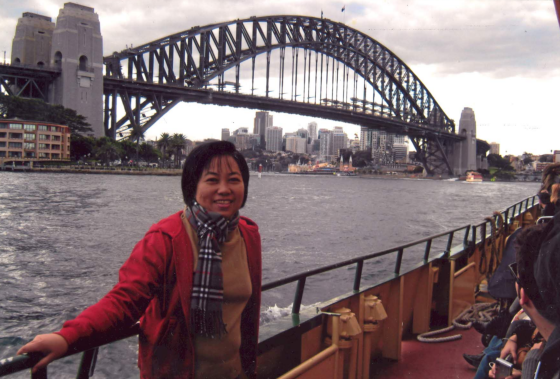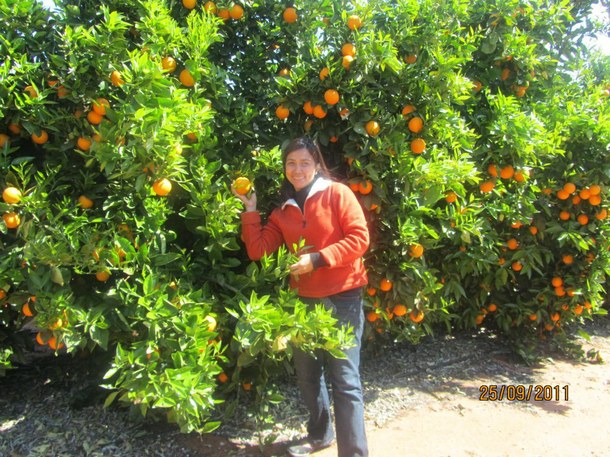Four outstanding Australia Awards alumnae working to make a difference in the Philippine land sector

For many Filipinos, access to land is a key means to get out of poverty. This is why the Philippine Government, through the Department of Environment and Natural Resources (DENR) - Land Management Bureau (LMB), has been working to improve land administration and management in the country through various reforms including computerization of land-related data and removal of overlapping oversight function among government agencies.
Four notable Australia Awards scholars are at the forefront of these reforms. One of them is Atty. Emelyne Talabis, Director of LMB and Australia Awards Fellow in 2009. “The Fellowship exposed me to how land administration and management is done in Australia. Because of this, I was able to appreciate the reform initiatives that DENR is currently implementing. I can say that we are on the right path,” she shared.
According to Director Talabis, the lack of accessible, transparent and reliable land data and our fragmented land administration system are two of the most pressing land issues the Philippine government needs to resolve. “That’s why the Bureau is pursuing the Land Administration and Management System (LAMS),” she said. The project, which involves computerization of land records, will link land information pertaining to cadastral maps, approved land survey plans, public land applications and titles. The LAMS will allow the public to have access to these data.
“LMB is currently capturing all pertinent data and aiming for full implementation of LAMs by 2018. However, we still need to link the systems and merge the data of the different agencies involved in land administration and management in the country. We are still working that out,” Dir. Talabis detailed.
Her Australia Awards Fellowship allowed her to observe Landgate’s, LMB’s counterpart in Western Australia, efficient service delivery. “In Western Australia, you can request a reconstituted title and get it within a few minutes. In the Philippines, you have to go through the courts. The process is very different there, very efficient. I want to model our land administration on Landgate’s system,” she said.
Director Talabis has the full support of other Australia Awards Scholars working at the LMB including Ms. Erma Quirimit, Special Investigator III; Ms Alice Robles, Center for Land Administration and Management Philippines (CLAMP) Manager; and, Ms Maria Gina Pascua from the Land Policy and Planning Division.

Ms. Quirimit took up post-graduate studies on Public Administration (Policy) at Flinders University. She is currently supervising the development of the revised manual on land disposition. “The manual will be distributed nationwide and will serve as a reference for LMB personnel, especially the new hires, in the processing of land patents,” Ms. Quirimit explained.
“It will also curtail corruption by ensuring that the proper procedure, including the allotted processing time, is followed,” she added.
 Ms
Ms
Robles (Master of Human Resource Management, University of Newcastle) backed her colleague, “We want to capacitate all LMB personnel. We want them to be more motivated, to be more efficient and productive, and ultimately, to provide better customer service.”
Like Director Talabis, Ms. Robles credits her Australia Awards experience in widening her perspective. “I now have an appreciation for cultural diversity because of my interaction with classmates from different countries at the University of Newcastle. I learned that there could be harmony in diversity,” she said.
Because students come from different places, it is natural that they have differing views. She was impressed by the teachers’ respect for dissenting opinions and how classroom discussions were handled. Using her learnings in Australia to encourage more open discussion between the management and staff of LMB, Ms. Robles along with other managers and division chiefs, are setting up an innovation team to encourage discussion and creativity at the Bureau. They hope that encouraging friendly debate among staff will produce not only new ideas to improve conditions in the workplace but also creative solutions to issues in the land sector.

Technical skills aside, studying in Australia also improved scholars’ coping skills. “It’s very hard but very fulfilling. Not everyone gets a chance to be an Australia Awards scholar. It has been a life-changing experience for me,” Ms. Pascua (Graduate Diploma in Public Administration, Flinders University) imparted.
“I learned how to manage stress. There was a lot of pressure especially because you are representing your country,” she continued. After her post-graduate studies in Australia, she returned to work at the Bureau’s planning and policy division where she is now OIC Chief. She credits her ability to calmly lead her team through heavy workload and tight deadlines to her experience studying in Australia.
All four awardees made great strides in representing women in government. Director Talabis, the first woman to head the Bureau in its 115-year history, is keen to see more women to join their rank. “I want to encourage more women to work for the government. Public service is very different to what it was before. We can now compete with the private sector in terms of quality of work and how we provide service. With the new salary standardization law, compensation is moving to be at par with our private sector counterpart.”
Australia Awards Scholarships is currently accepting applications for its 2017 intake. Visit www.australiaawardsphilippines.org or email the Secretariat at secretariat@australiaawardsphilippines.org for more information.

